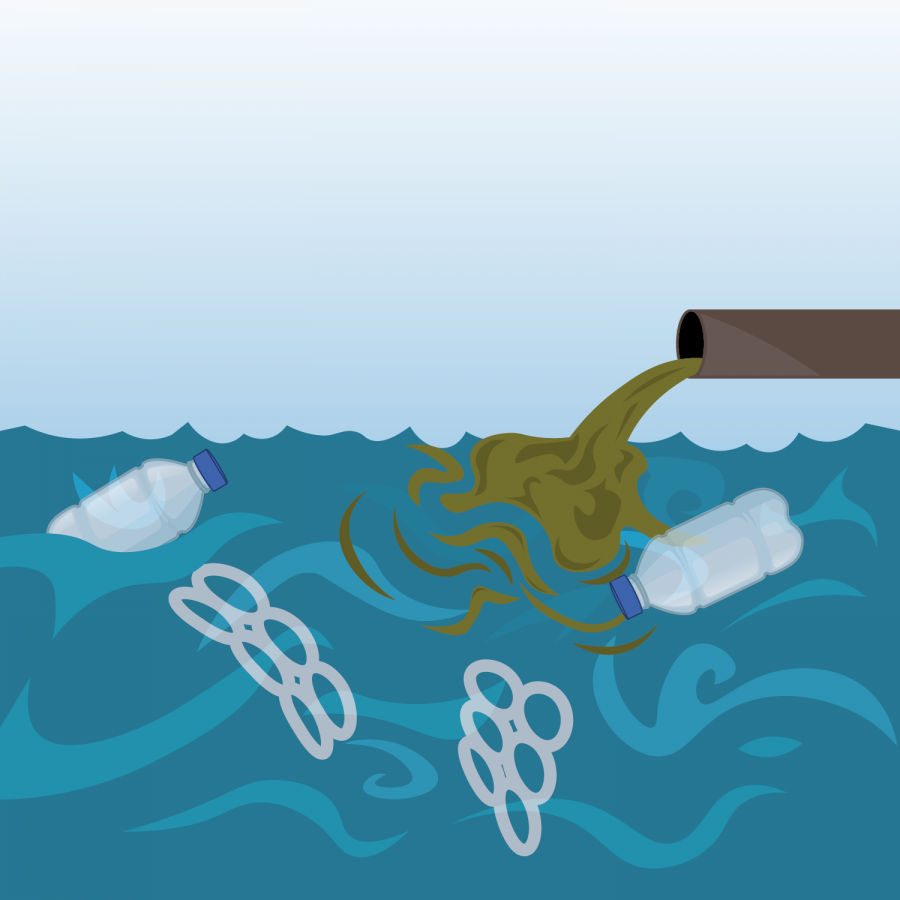The ocean shouldn’t be another dumpster
March 15, 2018
If you’re like me, you probably want to go scuba diving sometime in your life. For those who haven’t, exploring the depths of an ocean is a great activity to check off the bucket list. And if you’re like me, you also probably like to keep up with YouTube trends.
Recently, I came across a rising YouTube video titled “The ocean currents brought us in a lovely gift today…” that unsettled me. Unfortunately, I didn’t catch the sarcasm until I started watching the video.
I’ll save you the anguish by summarizing the tragic scenes. Picture a diver swimming among many species of aquatic animals and many varieties of manufactured waste. A large manta ray glides underneath scraps of plastic, and dark fish of many kinds swim around small pieces of thin fabric. Most of the water’s surface is encased in a blanket of wrappers, bottles and anything you’d find in a vending machine.
Of course, we’ve all heard stories and seen pictures concerning pollution. Everyone knows about the seagull wearing six-pack rings for a necklace. We’ve been told about how chemical waste is affecting bottlenose dolphins. Yet sadly, this is a problem we tend to ignore.
National Geographic estimated in 2015 that there are more than five trillion pieces of garbage floating in the ocean. Doesn’t cleaning up seem like a hopeless chore?
Get The Daily Illini in your inbox!
I propose that the answer lies inside the core of humanity. I realize saving the ocean is not our biggest problem; before we invest in Earth, we should recognize that we are the problem.
Although we may be accidentally destructive creatures, we have the agency and resources to act. Change begins with empathy for humanity. Along with respecting nature, we need to feed the impoverished and shelter the homeless. In order to have worldwide success, we need to focus on the bigger picture.
Thankfully, many organizations fight to combat ocean pollution, but despite the desire to free the oceans from waste, manufacturing corporations will not stop generating plastic.
Understand that there is no easy solution. Even if everyone is aware of marine pollution, our consumption and production outweighs our stewardship. But that doesn’t mean our efforts are fruitless.
Future pollution is preventable through folding up those empty pizza boxes, using your recycling bin and tearing up soda rings. We can reduce the usage of plastic products, fight to keep beaches clean, educate ourselves about pollution and support ocean-protecting organizations. Not only our future is at stake — our children’s is as well.
Humanity deserves better than what it has right now. We are the problem, but we can also be the solution.
Thomas is a freshman in LAS.







